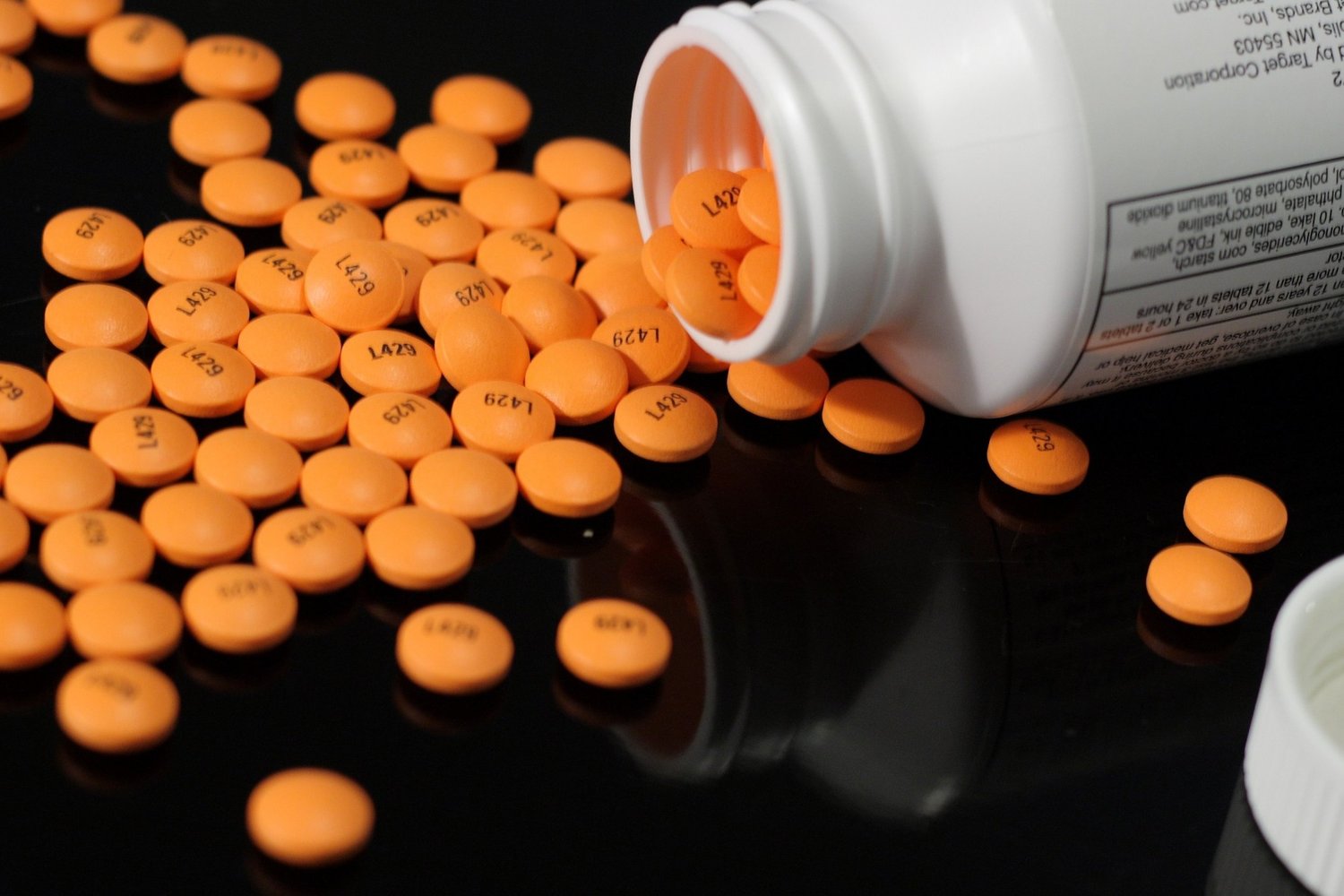Vitamin D and Cancer
Interview with
Chris - There is confusing and contradictory evidence about the link between vitamin D and cancer. Scientists now need to find out what the precise nature of that link is. Professor Sir John Burn is a Clinical Geneticist in Newcastle University and for the last 20 years, he's been leading an international consortium looking at cancer prevention in groups of people with a genetic predisposition to develop bowel cancers. Last year, they confirmed that aspirin can protect these individuals. Now they're turning their attention to vitamin D. Hello, John. So, who are these patients that you're looking at?
John - I've been working for 20 years with people with hereditary predisposition to bowel cancer in particular. They have a problem with genes called mismatch repair genes. They cannot fix spelling mistakes in their DNA.
If they inherit that gene they have about a 50% chance of developing cancer, mainly of the bowel and also of the womb, and obviously, they're very keen to help with attempts to find ways to reduce the risk of cancer which is of relevance to them and their families. But also, it's relevant to the rest of us because about 1 in 20 of us will develop a colon cancer in our lifetime and about a 6th of those have a problem with the mismatch repair genes. It's just that they acquire it during their lifetime rather it being an inherited problem.
These [people] are a model group in which we can study interventions that you couldn't really test in a rigorous way in the general population, because cancer happens so slowly in general population. You'd have to do vast studies over decades. And as you say, what we showed with the aspirin study, where we gave people aspirin for two years, was that after five years we had reduced their bowel cancer risk by over 60%, and that was on top of the benefits of giving regular colonoscopies and removing polyps.
That was a huge boost for our idea of these genetically targeted trials. So in the next five years or so, in addition to comparing different doses of aspirin to see if we can get away with less, we'd also like to see if we can give people vitamin D and whether that would give us the rigorous randomised control trial data which would justify us giving these patients and their families vitamin D on a regular basis.
 Chris - Before we dwell on the vitamin D, could we just have a look at what you think the mechanism is for why aspirin protected those people because that's a dramatic difference - a 60% reduction?
Chris - Before we dwell on the vitamin D, could we just have a look at what you think the mechanism is for why aspirin protected those people because that's a dramatic difference - a 60% reduction?
John - It is and in fact, that evidence has been building over 25 years. In fact, that story is very parallel to vitamin D in a way because it's the observational studies of people who were using a lot of aspirin-like drugs that demonstrated that there was a massive effect, but we couldn't get randomised data until we did our study which has really nailed it.
The answer is that aspirin again, somewhat like vitamin D, is probably an essential nutrient, something you need from the outside, and it has a wide range of effects. One of them is to promote programmed cell death or apoptosis, again [this is] like vitamin D. Plants make salicylate, which is the core of aspirin, in order to trigger programmed cell death when they develop infections. It's their way of defending themselves.
Interestingly, up until 100 years ago, we would have had quite a lot of salicylate in our diet because of eating wilder foods. Now that we grow everything under control, they don't get exposed to infection, so the salicylate never forms.
There are reasons we have seen in the laboratory, lots of evidence in the lab that says aspirin has a number of other effects particularly blocking inflammation which is a part of the cancer process. So that might also be part of it.
Chris - And what sort of dose of the aspirin do you need in order to get these effects? Would the same doses that are effective in preventing or reducing  the risk of heart attacks and strokes also be effective in the prevention of bowel cancer, or do you need a bigger dose?
the risk of heart attacks and strokes also be effective in the prevention of bowel cancer, or do you need a bigger dose?
John - That's the $64,000 question. We used two aspirins a day and got this big effect. Peter Rothwell did some wonderful studies over the last few years, looking at people who took part in the very early aspirin studies back in the '80s and found that those people had fewer cancers 10 years later when he checked them on the cancer registries.
Just last week, I was on the BBC talking with Professor Ray from St. Georges who had not found an effect. He had looked by meta analysis, which we're going to talk about in a moment, by pooling all the data on aspirin and cancer, and heart attacks to see whether people at low risk should take it. He didn't see a benefit, but that was because those studies only followed people for 6 years. The problem with these sorts of studies is you have to follow them for a very long time to see the benefit. In our high risk patients, they developed cancer much faster. That's why we were able to see the effect in only 5 years, but in the general population, you'd have to wait 10 years to see the benefit.
That, of course, has general relevance to this evening's conversation because when you do preventive work, you might have to wait a decade to see the benefit. You can't actually see the people who didn't get the disease. They never knew they were going to get it and they were "saved", so to speak. So all we ever see are the side effects.
A lot of the preoccupation has to be with, "Is it safe?" And I was interested in George's observation that vitamin D does seem to be an extremely safe supplement. The body can handle it extremely well. So although there is a little bit of evidence to suggest people on very high dose of vitamin D might have a slightly increased risk of cancer, certainly at any sensible dose, the evidence does seem to be building that vitamin D is very clearly beneficial.
Chris - And how is it first spotted that vitamin D does seem to have this protective effect in bowel cancer?
John - People have been looking for clues to explain the strange distribution of cancer for many years.
We should at this point by way just say, a word for Casimir Funk who, 100 years ago, actually coined the term 'vitamins' or vital amines he derived it from, when he discovered thiamine. And I learned that from reading Bill Bryson by the way!
It's interesting to realise that up until 100 years ago, we didn't realise that it was just not the fact that you ate a lot of food. It was what was in the food that mattered. Of course, we knew about scurvy long before, but it was only generalised in the 20th century that there are these series of elements that we needed that would be beneficial to us.
How vitamin D affects cancer? Again, I mentioned earlier about programmed cell death. Vitamin D might well have a key part to play there. But the point is that vitamin D is a crucial component of our body. It's not truly a vitamin, as George said earlier, because we do manufacture it or in fact, we should manufacture it from exposure to light.
It gets into the cells where it meets the vitamin D receptor and it has an impact on a whole range of genetic mechanisms and cellular mechanisms. So it's not at all surprising that if you're deficient in it, then you might see all manner of side effects or effects on the body in the same ways if you take away vitamin C, people's teeth fall out and all sorts of things happen.
These chemicals are an integral part of our body which we expect to be there and when they're missing, all sorts of things fall apart, the immune system being one of the most obvious ones. There's lots of interest in the fact that vitamin D deficiency might be a factor in people developing infections in the winter, for example. So, you can see it's a story building that vitamin D could well be playing in a whole series of different scenarios where it could have an impact on our ability to either prevent cancer or destroy cancer.
Chris - You obviously don't know the answer yet, but what are you now setting up to try to find out whether vitamin D is going to make a difference?
John - Essentially, what we now know from the beautiful study of two colleagues during the meta analysis last year is that there's about 5% cut in cancer per 100 units per litre of vitamin D in your blood stream. So we can work with that and do power analyses, and that will tell us how many thousand people we need to treat for how many years. We're working on that at the moment. But with the aspirin dose-finding study, we're going to be looking for 3,000 gene carriers, we'll supplement them and then follow them for 5 to 10 years. That is the only way we'll absolutely nail to the ground whether vitamin D can prevent cancer at a sufficient level to justify supplementing the population. But in the meantime, I think clearly there's a strong evidence for self-medication for those who - certainly those who are not exposed to sun and those with darker skin who are living now a long way from the equator.









Comments
Add a comment